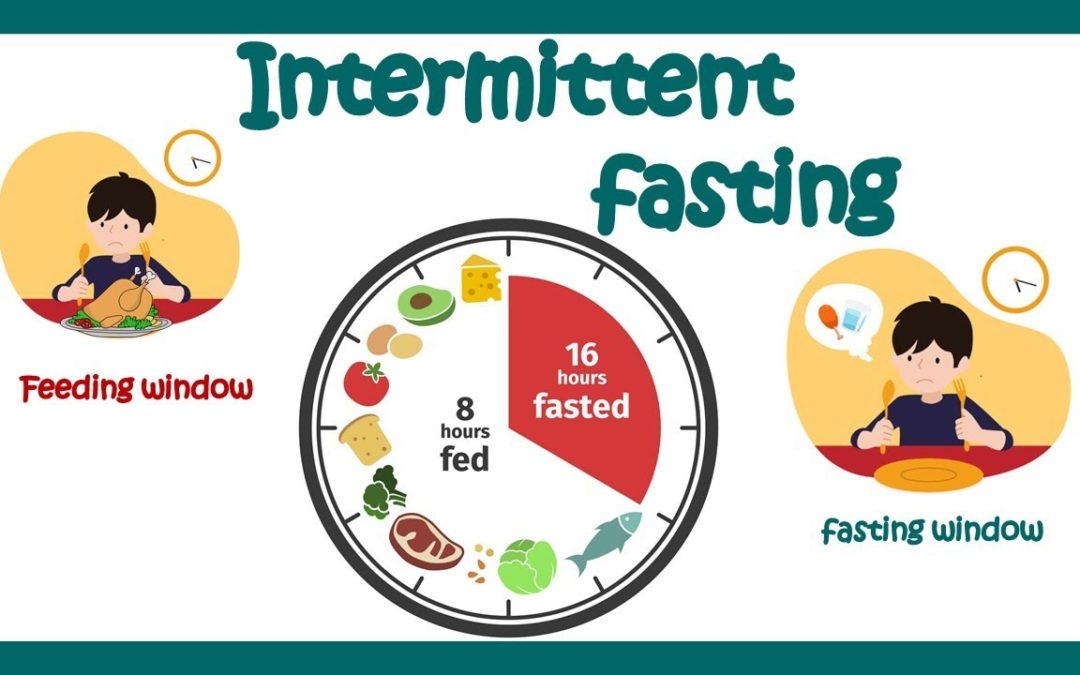
Could Intermittent Fasting Help You Live Longer?
Could intermittent fasting actually help you live longer? It’s a question that’s been gaining traction in recent years, as more and more people are looking for ways to improve their health and longevity. Intermittent fasting, which involves cycling between periods of eating and fasting, has been shown to have a number of health benefits, including weight loss, improved insulin sensitivity, and reduced inflammation.
But can it really help you live longer?
The science behind intermittent fasting and its potential impact on lifespan is complex and evolving. While some studies have shown promising results, others have found no significant link between intermittent fasting and longevity. This blog post will delve into the research on intermittent fasting and longevity, exploring the potential benefits, risks, and what we still need to learn.
What is Intermittent Fasting?

Intermittent fasting (IF) is an eating pattern that cycles between periods of eating and fasting. It doesn’t specify which foods to eat but rather when to eat them. It’s not a diet in the traditional sense, but rather a way to regulate eating times.
The idea of intermittent fasting for longevity is intriguing, but it’s crucial to remember that everyone’s body is different. If you’re an endurance athlete, you’ll need to carefully consider how your body responds to fuel deprivation, as you’ll need to be able to perform at your peak.
For tips on how to fuel your workouts effectively, check out this article on how endurance athletes should carb up during workouts. Ultimately, whether or not intermittent fasting helps you live longer is a question that requires individual experimentation and careful consideration of your own unique needs.
IF has gained popularity as a potential weight loss strategy and for its potential health benefits, which may include improved insulin sensitivity, reduced inflammation, and even extended lifespan.
Methods of Intermittent Fasting
There are various methods of IF, each with its unique schedule and approach:
- The 16/8 Method:This is one of the most popular methods, where you fast for 16 hours each day and eat within an 8-hour window. For example, you might eat between 12 pm and 8 pm and fast for the remaining 16 hours.
It’s fascinating to think about how lifestyle choices like intermittent fasting could potentially extend our lifespans. But while we’re focusing on optimizing our bodies, let’s not forget the power of our minds! Learning to manage stress and emotions through simple breathing exercises for every mood can be just as important for overall well-being.
After all, a healthy mind and body work together, and that could be the key to a longer, happier life, whether we’re practicing intermittent fasting or not.
- The 5:2 Diet:This method involves eating normally for five days of the week and restricting calories to 500-600 for two non-consecutive days.
- Eat Stop Eat:This method involves fasting for 24 hours once or twice a week. For instance, you might eat dinner on Monday evening and then break your fast with dinner on Tuesday evening.
- Alternate-Day Fasting:This method involves fasting every other day. You can consume your usual calories on non-fasting days.
The Science Behind Intermittent Fasting
IF primarily works by influencing the body’s hormonal response and metabolic processes. When you fast, your body switches from using glucose (sugar) as its primary energy source to burning fat for fuel. This process is known as ketosis.
Could intermittent fasting actually help you live longer? It’s a question many people are asking, and while there’s still research to be done, the potential benefits are exciting. One key aspect is giving your body a chance to recover, and that’s where the concept of “recovery days” comes in.
Check out 5 great things about recovery days to see how taking breaks can actually enhance your overall health and potentially contribute to a longer lifespan. Ultimately, finding the right balance between fasting and recovery days might be the key to unlocking a healthier, more vibrant future.
During fasting, the body produces higher levels of human growth hormone (HGH), which is involved in muscle growth and fat burning. It also lowers insulin levels, which can improve insulin sensitivity and reduce the risk of type 2 diabetes.
Potential Benefits of Intermittent Fasting
Numerous studies have explored the potential benefits of IF, suggesting it may:
- Promote Weight Loss:IF can help reduce calorie intake, leading to weight loss. Studies show that IF can be as effective as traditional calorie restriction diets for weight management.
- Improve Insulin Sensitivity:Fasting can improve insulin sensitivity, which is the ability of cells to respond to insulin and take up glucose from the bloodstream. This can help regulate blood sugar levels and reduce the risk of type 2 diabetes.
- Reduce Inflammation:Chronic inflammation is linked to various health problems. IF has been shown to reduce inflammation markers in the body, potentially protecting against diseases like heart disease and cancer.
- Promote Brain Health:Some studies suggest that IF may improve cognitive function and protect against neurodegenerative diseases like Alzheimer’s disease.
- Extend Lifespan:Animal studies have shown that IF can extend lifespan and improve overall health in various species. However, more research is needed to confirm these effects in humans.
Intermittent Fasting and Longevity

While the concept of intermittent fasting has gained popularity as a weight-loss strategy, growing scientific interest explores its potential impact on lifespan. Studies suggest that intermittent fasting might contribute to a longer and healthier life, but the evidence remains complex and requires further investigation.
Intermittent Fasting and Lifespan: Scientific Evidence
Several studies have investigated the link between intermittent fasting and lifespan, particularly in animal models. These studies have yielded mixed results, with some indicating a positive association while others showing no significant effect.
- In a study published in the journal -Nature* in 2017, researchers at the University of California, San Diego, found that intermittent fasting extended the lifespan of mice by up to 10%. The study showed that mice that fasted for 12 hours each day lived longer and were healthier than mice that ate freely.
- Another study, published in the journal -Cell Metabolism* in 2019, found that intermittent fasting extended the lifespan of fruit flies by up to 20%. The study also found that intermittent fasting improved the flies’ health, including their metabolic function and resistance to stress.
- However, other studies have found no significant effect of intermittent fasting on lifespan. For instance, a study published in the journal -Aging Cell* in 2016 found that intermittent fasting did not extend the lifespan of rats.
Potential Mechanisms of Intermittent Fasting and Longevity, Could intermittent fasting actually help you live longer
The potential mechanisms by which intermittent fasting might contribute to longevity are multifaceted and complex. Some proposed mechanisms include:
- Calorie Restriction:Intermittent fasting often leads to a reduction in overall calorie intake, which has been shown to extend lifespan in various organisms.
- Cellular Repair and Autophagy:Fasting periods trigger cellular repair processes, including autophagy, a process that eliminates damaged cells and promotes cell renewal.
- Hormonal Regulation:Intermittent fasting can alter the levels of hormones like insulin and growth hormone, which are involved in metabolic regulation and aging.
- Reduced Inflammation:Studies suggest that intermittent fasting can reduce inflammation, a key contributor to aging and age-related diseases.
Conclusive Thoughts: Could Intermittent Fasting Actually Help You Live Longer

The potential for intermittent fasting to extend lifespan is an exciting area of research. While more studies are needed to fully understand its long-term effects, the current evidence suggests that intermittent fasting may offer several health benefits, including improved metabolic health, reduced inflammation, and potential for longevity.
If you’re considering trying intermittent fasting, it’s essential to talk to your doctor to ensure it’s safe for you and to develop a plan that’s right for your individual needs and goals.






